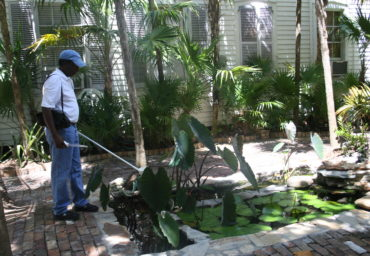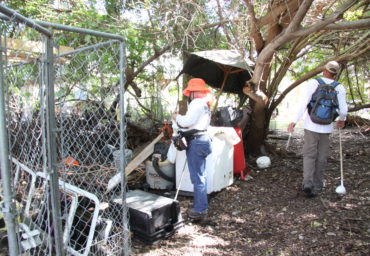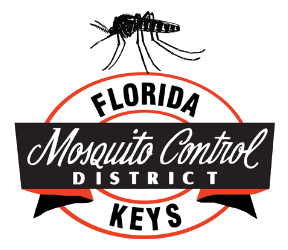Source Reduction
The Florida Mosquito Control District's source reduction program utilizes more than 35 specially trained 'Field Inspectors' assigned to specific geographic areas throughout the Florida Keys.

This domestic control program targets two main species of mosquitoes: the yellow fever mosquito, Aedes aegypti and the Southern house mosquito, Culex quinquefasciatus.
These mosquitoes are most easily controlled by treating or emptying containers that hold water, since the eggs of both species are deposited by the female mosquito in water-holding containers.
Citizens can contribute to this effort by preventing mosquito breeding on their property by dumping standing water and/or preventing it from accumulating in the first place.
Additionally, flushing bird baths and water holding plants such as Bromeliads on a weekly basis can stop mosquito development before it has a chance to begin.
Items that can hold water but are no longer used, such as old tires, should be disposed of properly. Boats should be covered or otherwise prevented from holding water.
What to Expect During an Inspection
FKMCD Field Inspectors can complete a residential inspection in a matter of minutes.
Inspectors are only interested in identifying and eliminating mosquito habitats. Water holding containers are dumped and or covered, drains are inspected and treated, and mosquito-eating fish may be introduced to consume mosquito larvae where appropriate.
The most problematic mosquito is the Aedes aegypti that has the potential to spread several diseases inccluding Dengue Fever, Yellow Fever and Zika.








Here are some easy to follow mosquito prevention recommendations offered by FKMCD field inspectors:
- Emptying all standing water and water-holding containers in their yards
- Keeping hot tubs and pools in working condition and appropriately chlorinated
- Changing water in pet bowls, flower vases and birdbaths at least twice a week
- Screening rain barrels, water tanks and cisterns or requesting fish
- Emptying plastic swimming pools when not in regular use
- Flushing out water-holding plants like bromeliads
- Cleaning clogged roof gutters and draining flat roofs
- Stocking ornamental ponds with mosquito-eating fish
- Drilling holes in garbage cans and recycle bins
- Removing old tires with stagnant water
- Removing water from stored boats


